NIL
What Caitlin Clark gets wrong about the transfer portal
Clark is correct in that the transfer portal further brings the concept of athletic amateurism in college sports into question. But here’s the thing: you can’t bemoan the loss of amateurism — which is a shoddy concept to begin with—while actively profiting off its downfall like Clark has, signing multi-million-dollar contracts that would make amateurism […]
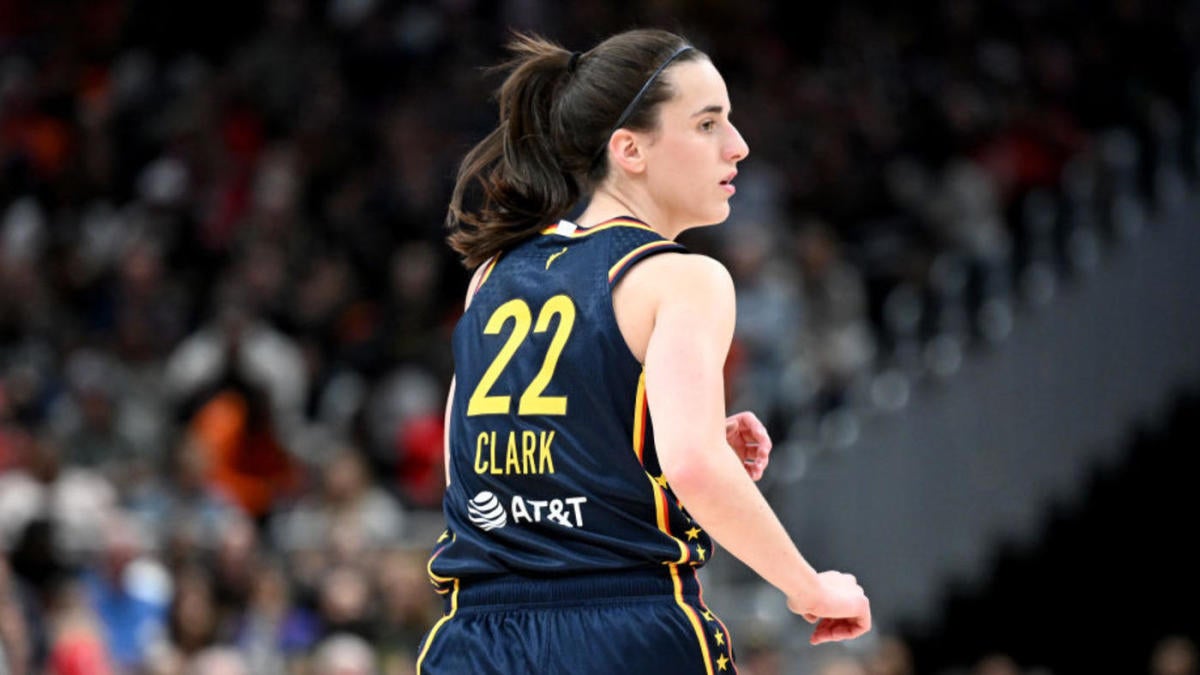
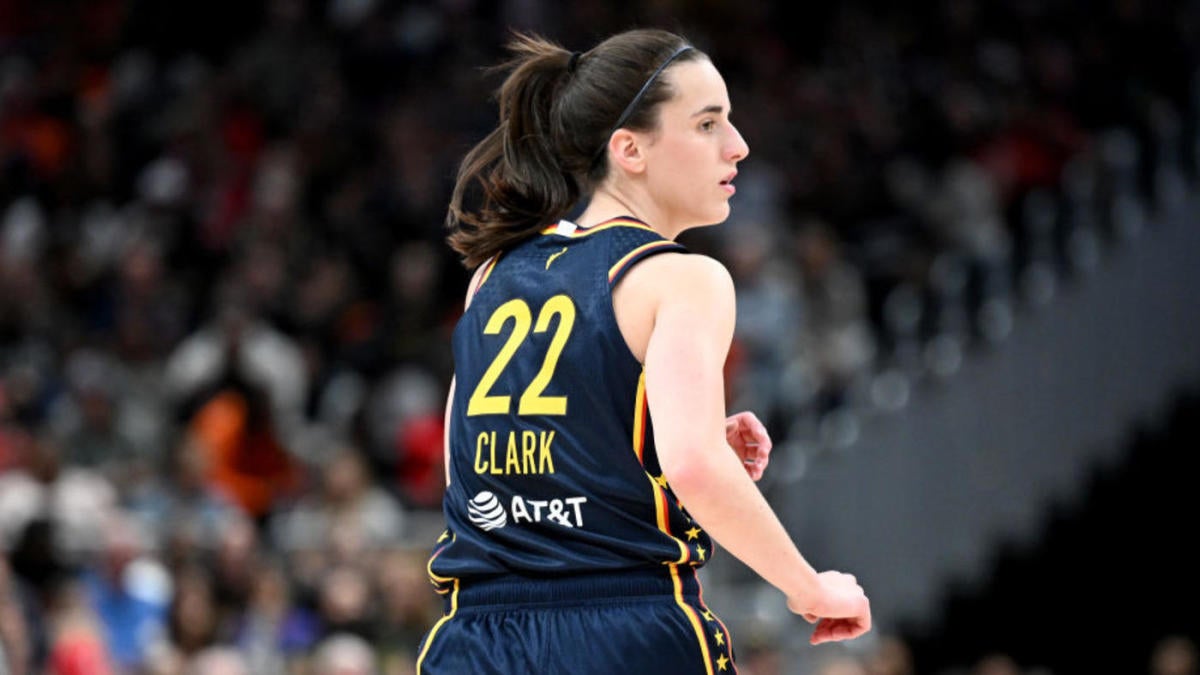

Clark is correct in that the transfer portal further brings the concept of athletic amateurism in college sports into question. But here’s the thing: you can’t bemoan the loss of amateurism — which is a shoddy concept to begin with—while actively profiting off its downfall like Clark has, signing multi-million-dollar contracts that would make amateurism purists cringe. And it’s clear that Clark doesn’t fall into that camp – even while dissing the transfer portal, she acknowledged the benefits of NIL earlier in her interview, when she discussed navigating broad policy changes while in college.
NIL has undoubtedly been great for college athletes like Clark, as her endorsements during her college career amplified her brand as well as her sport and set the foundation for her already-illustrious pro career. And the transfer portal is similarly good for athletes and universities.
Both NIL and the transfer portal shared one central critique: that fans would stop watching if athletes were paid (which Brett Kavanaugh heavily argued against in NCAA vs. Alston in July 2021), or if they didn’t stick with one team for four years.
Until recent updates to NCAA transfer policies, the same was not true for NCAA athletes, who had to sit out a season (if their transfer requests were accepted by the NCAA at all). Prior to 2018, college athletes needed their coach’s permission to contact other schools in regards to transferring, essentially enabling coaches to block rival schools from picking up their prized athletes. The NCAA’s latest transfer policies actually treat college athletes more like regular students, which Clark seems to be in favor of in regards to NIL.
“The NIL part of it – like the true endorsements, like you’re doing a commercial for the local coffee shop – it’s something so easy and so simple,” Clark said. “A normal student can do that, but like, why couldn’t an athlete?”
That includes Iowa, Clark’s Alma mater, who snagged Villanova transfer Lucy Olsen to replace Clark after her graduation.
Everything Caitlin Clark touches seems to turn to gold…but her recent comments about the transfer portal were lackluster at best. Earlier this month, Clark was a guest on the New Heights With Jason and Travis Kelce podcast, where she called out perhaps one of the most polarizing topics in college sports: the transfer portal.
If anything, the pseudo-free agency of college sports makes for great media coverage. What better to do in the offseason than speculate on where star players will land next season? This media landscape is great for women’s sports in particular because it keeps athletes at the forefront of coverage year-round. Like NIL, the transfer portal offers a slew of benefits for the brand power of college athletes. It’s especially true for women, many of whom peak in athletic earning potential in college due to a lack of professional opportunities for female athletes.
“The transfer portal is crazy — especially in football. That’s where I think it’s gotten the craziest,” Clark said on New Heights. “It’s kind of sad. You lost a little bit of that amateurism of college sports… but also, it’s the world we’re living in.”
Not only that, but before NIL was widespread, many people critiqued it in the same way critics are approaching the transfer portal.
For instance, last year’s offseason featured several key recruits in Caitlin Clark’s sport that caused a stir in a good way. Much of it started with then-Stanford forward, Kiki Iriafen, who was thrust into the national spotlight after dropping 41 points in the Cardinal’s Round of 32 OT win over Iowa State, essentially filling in for Cameron Brink, whose off night was capped off by her fouling out early in the fourth quarter. While the game enhanced Iriafen’s brand, the transfer portal amplified her value even further. Formally best known as Brink’s backup, Iriafen transformed into a household name after her announcement that she would be entering the transfer portal after Stanford’s season ended.
For better or worse, female athletes like Olivia Dunne, Angel Reese, the Cavinder twins, Juju Watkins, and Caitlin Clark are just as well-known for their NIL deals as they are for their game. And softball players like Jocelyn Alo, Michaela Edenfield, and Stanford transfer NiJaree Canady have also made headlines for their impressive NIL deals—including Canady’s record-breaking .2 million contract with Texas Tech’s NIL collective, The Matador Club—which amplifies their chronically under-resourced sport. With the 2028 Olympics featuring softball for the first time in 20 years, softball could very well be the next big thing in women’s sports, and NIL will have played no small part.
Caitlin Clark has been great for women’s sports. So has the transfer portal, even if she doesn’t like it.
From a visibility standpoint, the transfer portal has a similar effect: it brings eyes to under-covered athletes.
Neither has proven true. In the years since NIL and the transfer portal became mainstream, the College Football Playoff has reached record viewership. So, too, has women’s basketball, both in the regular and postseason, with last season’s national championship game between South Carolina and Iowa outperforming the men’s championship for the first time. The professionalization of college sports via commercialization has always been good for the industry’s bottom line. Now that athletes can take advantage, the revenue is booming even further.
And Clark’s argument about NIL (that because regular students can sign endorsements and become influencers, so why shouldn’t athletes) rings hollow when contrasted against her complaints against transferring. If a student in a university’s marching band or forensics team wants to transfer, they can do so without penalty from their extracurricular organizations.
While transferring does little to bridge that gap, it’s still a positive, and it’s time that we stop criticizing athletes who take advantage of the opportunity to do so.
With NIL, fears about the “end” of college sports abounded, with Clemson head football coach Dabo Swinney threatening to retire if college athletes were paid. Nick Saban admitted that NIL and transfer portal updates contributed to his decision to retire last season. Today, transfer athletes are criticized for being disloyal to their teams even though their coaches can switch up schools at the drop of a hat, sometimes even requiring a buyout to leave a school before their contract expires.
When former Oregon State guard Talia von Oelhoffen announced the same and used her transfer campaign to tease her fans about her final pick while showing off her personality, rumors of a super team at USC swirled around sports media, as both Iriafen and von Oelhoffen had USC as one of their finalists for their new basketball home.
And both NIL and the transfer portal have been excellent for female athletes, with the popularity of women’s basketball and volleyball skyrocketing in recent years, thanks in part to the visibility both NIL and transferring provide.
NIL
Report: Wisconsin files tampering lawsuit against Miami over Xavier Lucas recruitment
The University of Wisconsin and its NIL collective have filed a tampering lawsuit against the University of Miami, Ross Dellenger of Yahoo Sports reported. It has to do with the Hurricanes allegedly poaching defensive back Xavier Lucas from the Badgers. Dellenger called it a “landmark moment” for the sport: “The University of Wisconsin and its […]

The University of Wisconsin and its NIL collective have filed a tampering lawsuit against the University of Miami, Ross Dellenger of Yahoo Sports reported. It has to do with the Hurricanes allegedly poaching defensive back Xavier Lucas from the Badgers.
Dellenger called it a “landmark moment” for the sport: “The University of Wisconsin and its NIL collective filed a complaint in state circuit court on Friday against the University of Miami over tortious interference, according to documents obtained by Yahoo Sports,” he reported.
“In a first-of-its-kind and, perhaps, a precedent-setting move, Wisconsin is seeking unspecified damages, transparency and accountability from Miami for interfering with a binding revenue-share contract between Wisconsin and Xavier Lucas, a former defensive back who left the program in January to compete at Miami. It was a groundbreaking decision in which Lucas transferred without entering the portal (it had already closed) and after signing the contract with the Badgers.”
Back in January, Wisconsin released a statement on the matter, where they accused Miami of tampering, citing “credible information” and threatened to pursue legal action as a result of the situation. As you can see, they’ve taken that step.
“The lawsuit details what transpired in the winter among the three parties: Wisconsin, Miami and Lucas,” Dellenger added. “UW claims that Miami communicated with Lucas despite knowing he had entered a contract with the school, something it terms as ‘intentional’ interference that ‘was not justified or privileged’ and caused Lucas to ‘breach’ his contract.”
Additionally, the suit alleged that “Miami interfered with UW-Madison’s relationship with Student-Athlete A (Lucas) by making impermissible contact with him and engaging in tampering,” per Dellenger.
It’s been reported that Wisconsin and Lucas agreed to a two-year revenue-share agreement that was set to begin July 1, Dellenger noted. That’s why Wisconsin refused to enter Lucas’ name into the portal when he requested a transfer, but he found a way around it, withdrawing from classes and enrolling academically at Miami in January
Whatever comes next is bound to set a precedent for college sports moving forward. Tampering has become a hot-button word since the advent of the transfer portal and NIL, but this is certainly a first-of-its-kind lawsuit.
Meanwhile, the Big Ten Conference has been supportive of Wisconsin from the beginning, and their behind the Badgers and their suit against Miami: “We stand by our position that respecting and enforcing contractual obligations is essential to maintaining a level playing field,” their statement read, via Dellenger
“In addition to our legal action, we will continue to be proactive to protect the interests of our student-athletes, our program and the broader collegiate athletics community.”
Alas, Lucas played high school football at Fort Lauderdale (Fla.) American Heritage, where he was a four-star prospect. He was the No. 331 overall player from the 2024 cycle, according to the On3 Industry Ranking, a weighted average that utilizes all four major recruiting media companies.
Xavier Lucas totaled 18 tackles as a freshman at Wisconsin this past season. The defensive back also added two tackles for loss, a sack and an interception. We’ll see what he has in store for the future, but he’s certainly become an interesting case at the moment in the sport of college football as a whole.
— On3’s Nick Schultz contributed to this article.
NIL
Arkansas’ Wehiwa Aloy named 2025 Golden Spikes Award winner
Arkansas shortstop Wehiwa Aloy has been named the 2025 Golden Spikes Award winner. Tennessee left-handed pitcher Liam Doyle and Florida State shortstop Alex Lodise were runner-ups for the award. “Since 1978, USA Baseball has honored the top amateur baseball player in the nation with the Golden Spikes Award,” says the Golden Spikes Award website. “The […]

Arkansas shortstop Wehiwa Aloy has been named the 2025 Golden Spikes Award winner. Tennessee left-handed pitcher Liam Doyle and Florida State shortstop Alex Lodise were runner-ups for the award.
“Since 1978, USA Baseball has honored the top amateur baseball player in the nation with the Golden Spikes Award,” says the Golden Spikes Award website. “The award is given each year to the player who best exhibits exceptional on-field ability and exemplary sportsmanship.”
Aloy becomes the third Razorback to win the award in the past 10 years, joining right-handed pitcher Kevin Kopps (2021) and outfielder Andrew Benintendi (2015). He is the fifth consecutive player to win the award from the SEC.
“I’m just truly blessed to be able to have this award,” Aloy said. “Just to be able to play at Arkansas and for the people back at home too.”
The Wailuku, HI native was phenomenal in his second season at Arkansas, as he was named First Team All-SEC, SEC Player of the Year and an All-American along with the Golden Spikes Award honor. In 65 games played this season, Aloy posted a .350 batting average with 19 doubles, 21 home runs, 68 RBI, a .434 OBP% and a .673 SLG%.
Aloy and Arkansas’ season ended in Omaha
Arkansas‘ season came to an extremely disappointing end in Omaha following its 6-5 loss to LSU last Wednesday. The Razorbacks jumped out to a 5-3 lead in the top of the ninth courtesy of a Justin Thomas Jr. two-run single, but LSU responded to put runners on first and second with one out in the bottom of the ninth.
LSU’s Steven Milam seemingly grounded into game-ending double play, but Aloy decided to get the force-out at third instead. Luis Hernandez then made the Golden Spikes Award winner pay for his mistake, as he belted a two-run double to left field to tie the game. Jared Jones then snuck a game-winning RBI-single over the head of Arkansas’ Cam Kozeal into center field, propelling the Tigers to the Men’s College World Series Final against Coastal Carolina.
Arkansas head coach Dave Van Horn defended Aloy postgame.
“The way it all turned out, I guess I would have [liked to seen Aloy try for the double play],” Van Horn said. “I haven’t talked to him about it. I think he felt he moved too far to his right for Cam to turn it. I don’t know. He’s an average runner. He’s not a flyer, but he’s not slow either. So I don’t know.”
Aloy is projected as the No. 17 overall pick in the upcoming MLB Draft in MLB.com’s latest mock draft.
NIL
Ryder Lyons Captivates College Football with Dramatic Recruitment Decision
Ryder Lyons’ Recruitment Journey Ryder Lyons, a five-star quarterback with immense potential, finds himself at the center of a gripping recruitment saga that has captivated college football fans and analysts alike. His journey has transcended mere visits; it has evolved into a deep exploration of values, aspirations, and the future of his athletic career. A […]

Ryder Lyons’ Recruitment Journey
Ryder Lyons, a five-star quarterback with immense potential, finds himself at the center of a gripping recruitment saga that has captivated college football fans and analysts alike. His journey has transcended mere visits; it has evolved into a deep exploration of values, aspirations, and the future of his athletic career.
A Thorough Exploration of Options
In recent months, Lyons has meticulously evaluated six elite programs: Michigan, Ohio State, Ole Miss, USC, Oregon, and BYU. Each visit was not just a cursory glance at facilities or coaching staff; Lyons engaged deeply with the culture, the coaching philosophies, and the overall fit for his ambitions. This thoroughness reflects not only his commitment to finding the right program but also his understanding of the pivotal role that college choice plays in shaping his future both on and off the field.
The Final Contenders
As the dust settles, it has become clear that the competition has narrowed to two frontrunners: Oregon and Ohio State. Both programs boast rich histories and promising futures, making the decision even more consequential. For Lyons, this choice is not merely about football; it intertwines with his personal values, including his faith and the burgeoning influence of Name, Image, and Likeness (NIL) opportunities.
Faith and NIL: Guiding Principles
Lyons’ faith plays a significant role in his decision-making process. It shapes not only his character but also his vision for how he wants to impact the world around him. This spiritual aspect adds a profound layer to his recruitment, as he seeks a program that aligns with his beliefs and allows him to thrive both as an athlete and as an individual.
Simultaneously, the NIL landscape has transformed the recruiting environment, presenting athletes like Lyons with unprecedented opportunities to monetize their talents. The allure of NIL deals can significantly influence a player’s decision, making it essential for Lyons to consider how each program supports and facilitates these opportunities.
Looking Ahead
As Lyons approaches this pivotal decision, the stakes are high. The choice between Oregon and Ohio State will not only define his college football career but could also set the stage for his future in professional sports. With every visit, conversation, and reflection, he inches closer to a decision that will resonate well beyond the gridiron.
In an era where recruitment is as much about personal growth as it is about athletic prowess, Ryder Lyons stands at a crossroads. His journey illustrates the complexities of modern college football recruitment, where faith, values, and financial considerations converge, ultimately shaping the next generation of athletes. As his story unfolds, one can only anticipate the impact of his choice on his career and the programs vying for his commitment.
NIL
Wisconsin Files Suit Against Miami as College Athletics Continues to Try to Work Out Its Problems
Although judge Claudia Wilken signed off on the House v. NCAA settlement earlier this month, there is still a lot of work to be done to apply guardrails on a system that has felt lawless for the past few years. Another step in that process started on Friday when the University of Wisconsin and its […]
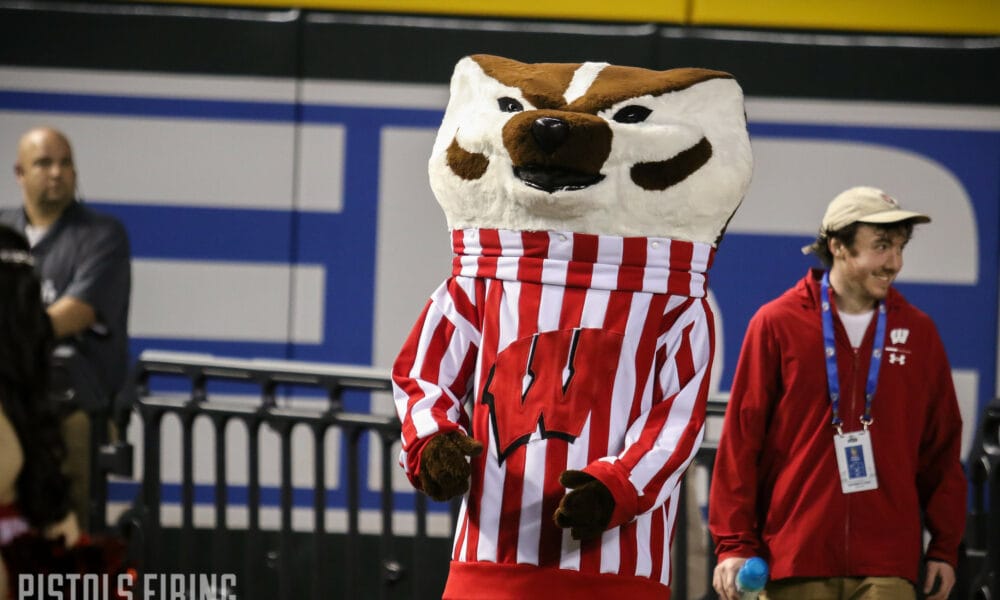
Although judge Claudia Wilken signed off on the House v. NCAA settlement earlier this month, there is still a lot of work to be done to apply guardrails on a system that has felt lawless for the past few years.
Another step in that process started on Friday when the University of Wisconsin and its NIL collective filed a complaint in state court against the University of Miami, claiming the Hurricanes poached a defensive back Xavier Lucas, according to Yahoo Sports’ Ross Dellenger. The whole thing sounds like a mess, but perhaps more important than the specifics of this particular case is what precedent it will set.
Talks of tampering in this portal/NIL era have been widespread. Even if Miami did what Wisconsin is accusing it of, it’s incredibly hard to imagine the Hurricanes are the only ones doing it. The issue resides in the fact that despite tampering being bad, the NCAA has been unable to police a crosswalk in recent years much less its member institutions because of different things happening in the courts.
I think everyone would rather the threat of tampering go away, but because of how widespread the issue is viewed, it seemed like it would be a tough thing to tackle. For some schools, accusing another school of tampering would feel like throwing stones in a glass house.
OSU coach Mike Gundy has on a few occasions likened the NCAA’s fleeting power to speeding tickets.
“There’s a speed limit sign that says 55, but nobody drives 55 and there’s nobody getting a ticket,” said Gundy back in 2022. “So, you really don’t have to drive 55. That’s actually what’s in place right now, in my opinion. What direction it’s going to go from now moving forward, who’s going to police it, what the mandates will be, I’m not sure. We’re just living day to day with this.”
He said that back in 2022, and it still feels relevant more than three years later. But maybe this lawsuit is a first step in getting the tampering issue solved. This is just one of many things the new world of college athletics will have to figure out in the fallout of the settlement being signed off on. It certainly feels like this is going to continue to take a while.
Here’s what the Big Ten had to say about Wisconsin’s lawsuit:
“The Big Ten Conference is aware of the litigation recently filed by the University of Wisconsin-Madison against the University of Miami and is supportive of UW-Madison’s position. As alleged, the University of Miami knowingly ignored contractual obligations and disregarded the principle of competitive equity that is fundamental to collegiate athletics.
“The Big Ten Conference believes that the University of Miami’s actions are irreconcilable with a sustainable college sports framework and is supportive of UW-Madison’s efforts to preserve.”
NIL
WATCH: $4.1M NIL Star AJ Dybantsa Honors His Roots With Heartfelt Nike Giveaway in Utah
AJ Dybantsa may originally be from Brockton, Massachusetts, but he now calls Utah home, as he went to Utah Prep in his senior year of high school, and will be going to BYU in Provo for college. He has an NIL partnership deal with Nike, and is now giving back to his new community by […]
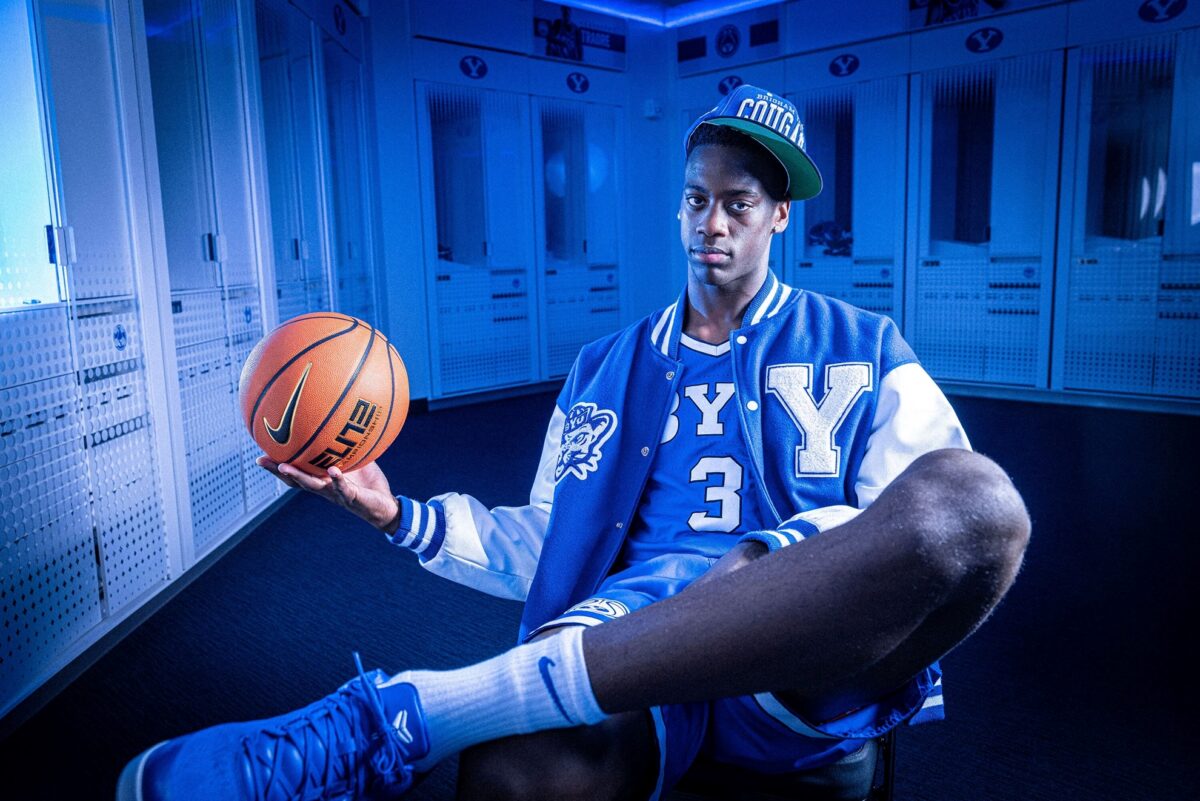
AJ Dybantsa may originally be from Brockton, Massachusetts, but he now calls Utah home, as he went to Utah Prep in his senior year of high school, and will be going to BYU in Provo for college. He has an NIL partnership deal with Nike, and is now giving back to his new community by giving away Nikes in Utah.
The No. 1-ranked prospect from the Class of 2025 per ESPN and On3 arrived at the Boys’ and Girls’ Club of America in Provo to give away the free Nikes to kids in need. AJ Dybantsa, whose NIL is valued at $4.1 million per On3, documented the trip in his YouTube channel, as he gave away not just shoes, but also bags, balls, and other Nike merchandise. Here is the video:
The kids made a special sign for the incoming BYU freshman and were chanting his name as he addressed them and their families.
“Thank you y’all, I’m AJ Dybantsa, a freshman at BYU,” the No. 1-ranked recruit introduced himself. “I’m here with Richie Saunders who’s a senior, Dawson Baker and Brody. We have a special delivery.”
This was when Dybantsa revealed that he was a member of the Boys’ and Girls’ Club of America when he was younger too.
“I used to be a Club kid, when I was five, six, I used to do the summer program, My dad used to drop me off and I used to just, you know, play basketball, hang with kids and just, you know, have a good time,” he said.
Dybantsa also revealed that he previously donated to the Boy’s and Girls’ Club in Brockton, as well as the one in Boston, and now, as this is his newest community, he has donated to the one in Provo as well.
Dybantsa will be entering his freshman year in BYU, though he is not expected to stay for long, as he has been honest about wanting to get to the NBA as soon as possible.
AJ Dybantsa to Return to the International Stage for the FIBA U19 World Cup
Before he begins his freshman year at Provo, however, the top-ranked BYU recruit will be suiting up for the red, white and blue as he heads to Switzerland as part of USA Basketball’s U19 national team. He will participate in the FIBA U19 World Cup, alongside former teammates JJ Mandaquit and Tyran Stokes.
Dybantsa has plenty of national team experience, giving the US gold medals in the FIBA Americas U16 tournament and the FIBA U17 World Cup. He also represented Team USA during last April’s Nike Hoop Summit, but represented Jamaica and Congo for Team World last year. His mother is an immigrant from Jamaica, while his father is an immigrant from Congo.
College Sports Network has you covered with the latest news, analysis, insights, and trending stories in football, men’s basketball, women’s basketball, and baseball!
NIL
South Carolina Moves to Ban NIL Deals for High School Athletes Amid Growing Legal Debate
In response to legislative pressure, the South Carolina High School League (SCHSL) amended its bylaws this week to explicitly prohibit student-athletes from earning compensation for their athletic participation. The change, documented in a report by the South Carolina Daily Gazette, aims to comply with a newly passed state budget clause that bans public school districts […]
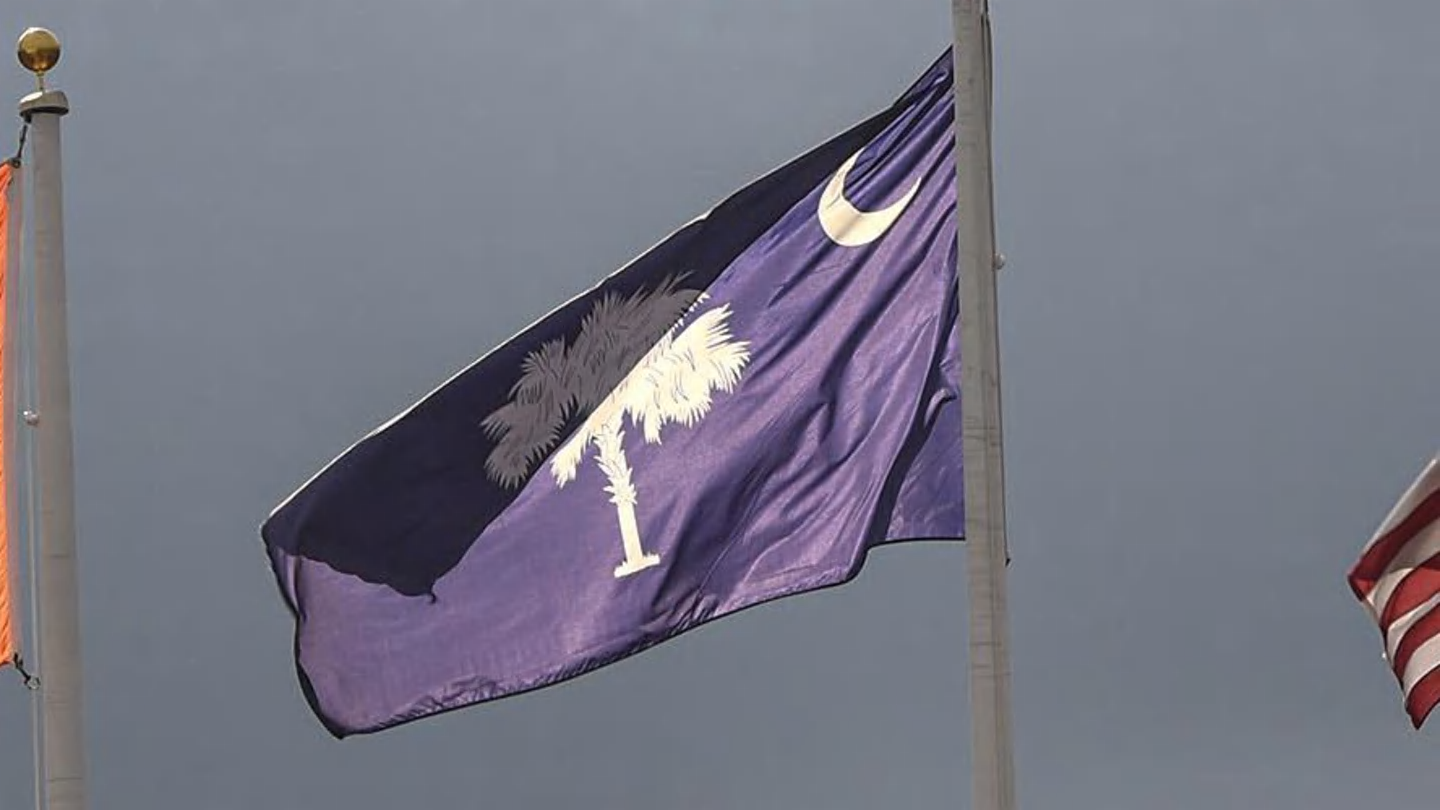
In response to legislative pressure, the South Carolina High School League (SCHSL) amended its bylaws this week to explicitly prohibit student-athletes from earning compensation for their athletic participation. The change, documented in a report by the South Carolina Daily Gazette, aims to comply with a newly passed state budget clause that bans public school districts from affiliating with any athletic association that “permits, allows or authorizes” NIL (Name, Image and Likeness) compensation.
Previously, the wording of SCHSL’s rules could have been interpreted as permitting athletes to earn compensation as long as it wasn’t tied to athletic performance or use of school property. League Commissioner Jerome Singleton clarified that the amendment doesn’t reflect a new policy but rather reinforces long-standing rules about maintaining amateur status.
“You can change the wording, but you can’t change the intent,” Singleton told the South Carolina Daily Gazette.
South Carolina State Senator Sean Bennett (R-Summerville), who authored the budget clause, said the policy was meant to protect the amateur nature of high school sports.
“These are extracurricular activities. They are no place for the ugliness or business activities ruining college athletics,” Bennett said.
The move comes as nearly 40 states and the District of Columbia have adopted NIL policies for high school athletes. South Carolina remains among the few actively pushing back.
Under the new bylaw language, the following penalties are in place:
Since the NCAA allowed NIL in 2021, the floodgates of compensation for athletes have opened — with minimal federal regulation. The SCHSL and its supporters fear those trends are now seeping into high school sports.
In March, the SCHSL also relaxed its transfer rule, allowing one penalty-free school transfer for athletes — mirroring the NCAA’s now-normalized transfer environment.
Bill Carter, a consultant who advises schools and athletic associations on NIL policy, called the South Carolina budget clause “pretty extreme” and warned it could prompt a lawsuit.
“The courts are never going to accept that there’s an impediment to a young person’s ability to earn income by way of their name, image and likeness,” Carter said to the South Carolina Daily Gazette.
Carter referenced court rulings in North Carolina and the landmark Supreme Court decision against the NCAA as strong indicators that legal challenges to South Carolina’s stance may be successful.
While many lawmakers support the crackdown, others—like Rep. Jackie “Coach” Hayes—emphasize concern over team cohesion.
“We got enough ‘me’ in this world,” Hayes said to the Gazette. “We need to get everybody working together for a common cause.”
Still, as of now, South Carolina stands firm — making it one of the few states not only to oppose NIL deals for high schoolers but to codify that opposition into law.
-
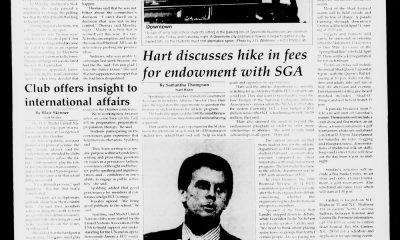
 High School Sports2 weeks ago
High School Sports2 weeks agoParents Speak Out As Trans Pitcher Throws Shutout In MN State Quarterfinals
-

 Professional Sports2 weeks ago
Professional Sports2 weeks ago'I asked Anderson privately'… UFC legend retells secret sparring session between Jon Jones …
-

 Health2 weeks ago
Health2 weeks agoOregon track star wages legal battle against trans athlete policy after medal ceremony protest
-

 Professional Sports2 weeks ago
Professional Sports2 weeks agoUFC 316 star storms out of Media Day when asked about bitter feud with Rampage Jackson
-

 NIL3 weeks ago
NIL3 weeks agoMen's college basketball Top 25 reset
-

 Motorsports1 week ago
Motorsports1 week agoNASCAR Weekend Preview: Autódromo Hermanos Rodríguez
-
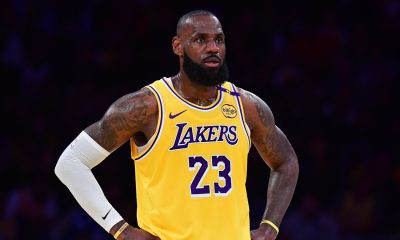
 Rec Sports3 weeks ago
Rec Sports3 weeks ago2x NBA All-Star Reacts to Viral LeBron James Statement
-
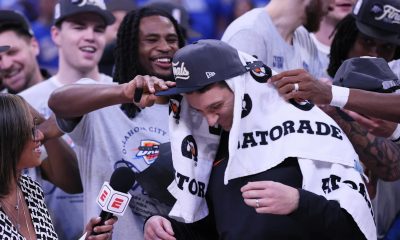
 College Sports3 weeks ago
College Sports3 weeks agoOKC’s Mark Daigneault knows what it takes to win championships. His wife has won a ton of them
-

 Social Media3 weeks ago
Social Media3 weeks agoControversial Athletics Gender Dispute Goes Viral After Riley Gaines Lashes Over Authorities
-

 Motorsports3 weeks ago
Motorsports3 weeks agoCorey LaJoie to make nine NASCAR Truck Series starts with Spire Motorsports




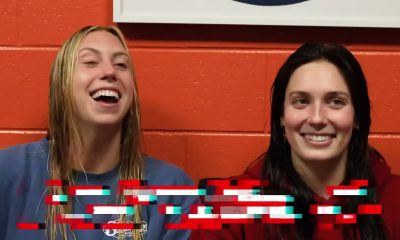

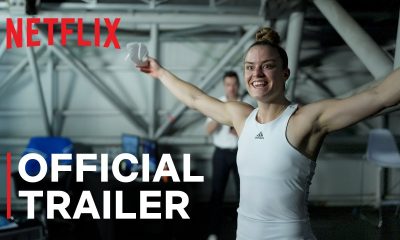





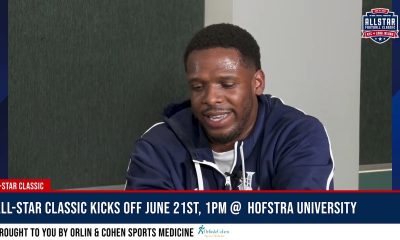

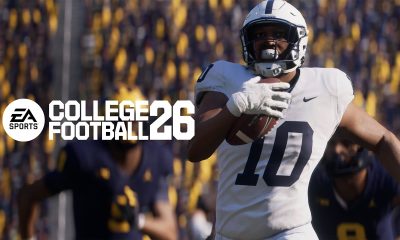

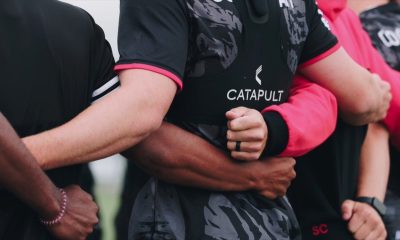



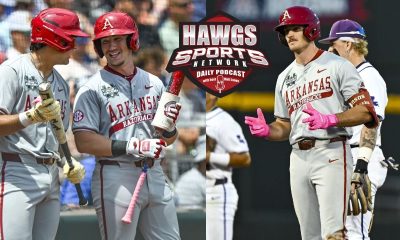












 | NBA Countdown
| NBA Countdown





















